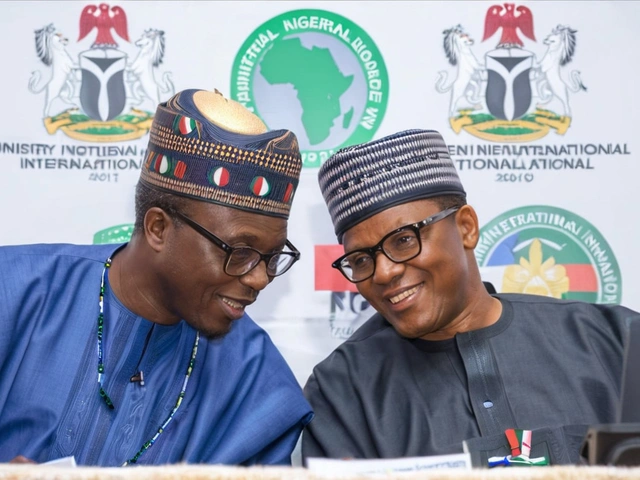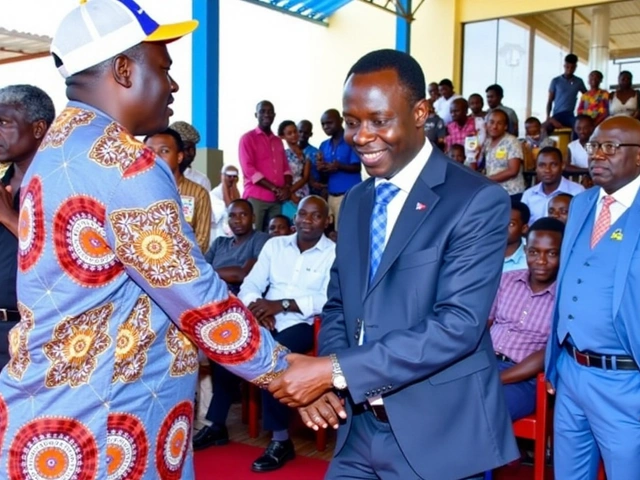Floyd Shivambu Leaves EFF to Join MK Party, Shaking Up South Africa's Political Scene
In a move that has sent ripples through the political landscape of South Africa, Floyd Shivambu has officially resigned from his role within the Economic Freedom Fighters (EFF) to join the uMkhonto weSizwe (MK) Military Veterans Association. Shivambu, a prominent figure who has been instrumental in the rise of the EFF, announced his decision following a challenging period of political turbulence. His resignation and subsequent alignment with the MK Party are being viewed as a strategic maneuver aimed at boosting his political career.
A Key Figure in South African Politics
Floyd Shivambu has long been a household name in South African politics. As a founding member of the EFF, his contributions have been pivotal to the party’s growth and influence. The EFF, formed in 2013 under the leadership of Julius Malema, quickly became a significant player in South African politics. Known for its radical and revolutionary stance, the EFF has drawn support from various sectors of the population, particularly the youth and disenfranchised communities. Shivambu, serving as the party’s deputy president, has been at the forefront of many of its initiatives and policies.
However, Shivambu’s journey within the EFF has not been without its challenges. Amidst internal disputes and external criticisms, Shivambu has had to navigate complex political terrains. His resignation marks the end of an era for the EFF and signals a shift that some insiders suggest could lead to further internal upheavals within the party. For supporters and fellow party members, this development is unexpected, leaving a gap in leadership that will be difficult to fill.
A Strategic Shift to the MK Party
Shivambu's decision to join the MK Party is viewed as a calculated move designed to tap into the historical and political significance of this veteran organization. The MK Party, forged during the fierce battle against apartheid, remains a symbol of resistance and resilience in South Africa. This connection to the anti-apartheid struggle offers Shivambu a new platform imbued with a robust legacy, potentially allowing him to garner broader support.
The MK Party itself has been undergoing a process of revitalization, aiming to reclaim its influence on the contemporary political stage. Shivambu's entrance into the party is thus seen as mutually advantageous, with the MK Party gaining a seasoned politician known for his tactical acumen and public presence. Party leaders have expressed enthusiasm, emphasizing Shivambu’s potential to significantly contribute to the MK Party’s goals and aspirations. This combination of historical importance and fresh leadership aims to renew the party's appeal among both older supporters and new, younger demographics.
Mixed Reactions from Political Analysts and Public
Reactions to Shivambu's resignation and new allegiance have been mixed. Some view this move as a pragmatic decision that could enhance his political footprint, while others perceive it as a betrayal of the EFF’s principles and ideals. Within the EFF, this has sparked debates, with some members calling for introspection and others questioning the future direction of the party.
Several political analysts have weighed in on the development, noting that Shivambu’s shift is indicative of broader realignments within South African politics. As individuals and factions reevaluate their positions and forge new alliances, the dynamics of power are continuously evolving. Observers are keen to see how Shivambu’s experience and influence will translate within the MK Party and whether this will lead to further changes in the country’s political fabric.
Implications for South Africa's Political Landscape
The departure of a high-profile figure like Shivambu from the EFF to the MK Party carries substantial implications. Both domestically and internationally, stakeholders are closely monitoring how this will affect political strategies and voter behaviors. The EFF is now tasked with addressing the vacuum created by Shivambu's exit, while simultaneously working to maintain its ideological integrity and public support.
Conversely, the MK Party stands to benefit from the influx of Shivambu’s expertise and network. This could potentially lead to a resurgence in its political activities and influence. As Shivambu integrates into his new role, the focus will also be on whether his visionary plans align with the ethos of the MK, and how effectively he can foster cohesion within the party.
This significant shift also underscores the fluid nature of political affiliations, and how strategic repositioning remains vital for political survival and relevance. With Shivambu taking on a new mantle, the anticipation surrounding his next moves and the resulting political reverberations will no doubt keep both supporters and critics on high alert.
The unfolding situation promises to be a defining chapter in South African politics, with long-term consequences that will likely reshape party loyalties and political strategies. As the political chessboard continues to shift, all eyes remain fixed on Floyd Shivambu and the impact of his bold transition from the EFF to the MK Party.






Write a comment